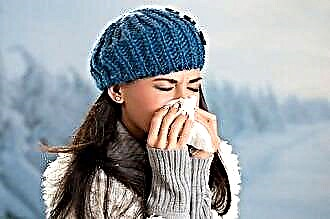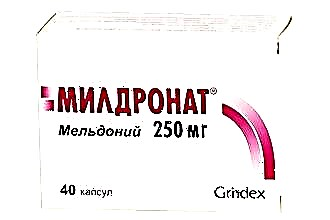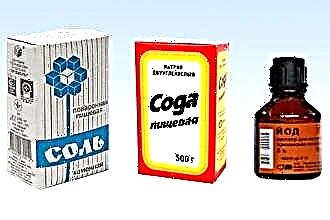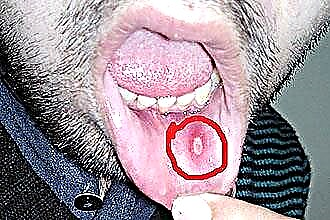It is believed that if a person is sick with an infectious disease of the nasopharynx, then it is better for him not to walk outside, especially in the cold season. This is explained by the fact that the patient inhales fresh air, which can harm an unhealthy throat.
 The main symptom of sore throat is severe soreness of the throat, redness, plaque on the tonsils.
The main symptom of sore throat is severe soreness of the throat, redness, plaque on the tonsils.
The cause of the disease is the activation of pathogenic bacteria or viruses under the influence of adverse factors.
Risk factors: hypothermia, the effect of irritating microparticles on the throat mucosa, allergic reactions, trauma to the throat, contact with cold water or cold food. Since hypothermia is one of the causes of sore throat, is it possible or not to walk with a sore throat?
Is bed rest necessary?
In addition to sore throat, a patient with angina has severe intoxication. High temperature, increased sweating, weakness, soreness in muscles, joints, head - all this makes a person lie in bed. If a person feels severe fatigue, dizziness, moreover, if he often sweats, then in this case bed rest is indicated.
It is no secret that many patients with angina ignore bed rest and go to work. It is not right. First, the body must spend its energy, which is so little on fighting infection, and not on physical activity. Secondly, acute tonsillitis is an extremely contagious disease, so the infection in the collective will spread very quickly by airborne droplets or through personal contact. You need to have respect for your colleagues and not put them at risk of catching an infection.
In the stage of severe intoxication, any physical activity and finding an infected person in a team are contraindicated
How long has a person been contagious?
The acute phase of the disease lasts 2-3 days. In a few days, the person will not be contagious. Usually it is 1-3 days, depending on the form of the pathology and the timely started correct treatment. It is possible to understand that the antibiotic has been selected successfully and actively fights against pathogenic microbes by the general state of health when intoxication phenomena subside. When a patient feels a significant improvement after starting treatment, he is no longer contagious to others.
Signs that viruses and bacteria are no longer dangerous:
- decrease in temperature to subfebrile or normal;
- reduction or disappearance of joint, muscle, headaches;
- burst of strength;
- improved appetite and sleep.
You can not interrupt treatment when the condition improves. This can lead to the development of serious complications.
When can I walk outside?
Fresh air does not negatively affect a sore throat. With angina, you can walk outside in winter and in summer, if the person is not difficult to move around, and he does not have dizziness. Perhaps the only relative contraindication to walking in the fresh air is fever, poor health of the patient, his desire to lie in bed.
Many people are afraid to go out for a walk when it is cool or freezing temperatures outside. Do not be afraid of frost. To really supercool the tonsils and throat, you need to intensively breathe frosty air for an hour or two.
What a walk in the fresh air gives for an infected with sore throat:
- improves tone and general well-being;
- the condition of the mucous membrane of the pharynx and tonsils is normalized when air enters them;
- pain syndrome decreases;
- the breakthrough of purulent foci is accelerated;
- tonsils heal faster;
- immunity is activated.

In the absence of fever, the patient can walk even with purulent sore throat
How can you walk:
- dress warmly, the patient should not freeze, but also should not sweat;
- you just need to walk, and not sit on a bench or go shopping;
- you can walk in ecologically clean places (parks, squares, gardens). It is not recommended to walk along the road and breathe in carbon monoxide gas, as irritating particles will get on the mucous membrane of the throat and tonsils and cause a cough reflex. You need to choose open places without drafts;
- do not go far from home in case of deterioration;
- sore throat has a high index of contagiousness, so the patient does not need to communicate with other people on walks so as not to expose them to the risk of infection. This is especially true for children, parents should not take sick children to playgrounds, sandboxes, to kindergarten; it is recommended to walk when there is no wind, rain or storm outside. Calm weather is required for walking;
- it is advisable to walk along cleaned paths without snow, puddles and ice so that your feet do not freeze;
- you can split the time for walking. It is better to take a walk 2-3 times for 15-20 minutes than to go out for two hours at once, especially if a person went out into the fresh air for the first time after he fell ill;
- in summer, under the influence of sunlight, the body actively produces vitamin D, which is necessary to strengthen the immune system. The main thing is not to walk under the scorching sun;
- the duration of walks can be increased gradually;
- after a walk, it is best to go to bed.

In order not to provoke the development of complications, you can go outside only after the temperature has returned to normal. For fever, bed rest is indicated.
In the acute phase of the disease at an elevated temperature, the patient needs to frequently ventilate the room, at least once an hour. The air temperature in the room should be no more than +20 degrees. After a sore throat, rehabilitation lasts 3-3 weeks.
At this time, you can increase the walking time.
Children under five years of age, pregnant women, lactating women, people with weakened immunity are at risk of developing severe complications after angina. This category of people should be especially serious about walking in the fresh air during a period of illness.
Fresh air and frosty and sunny will help speed up recovery, but if there is the slightest doubt whether to go outside or not with a sore throat, then it is better not to do this. If all the recommendations are followed, no complications should arise.




